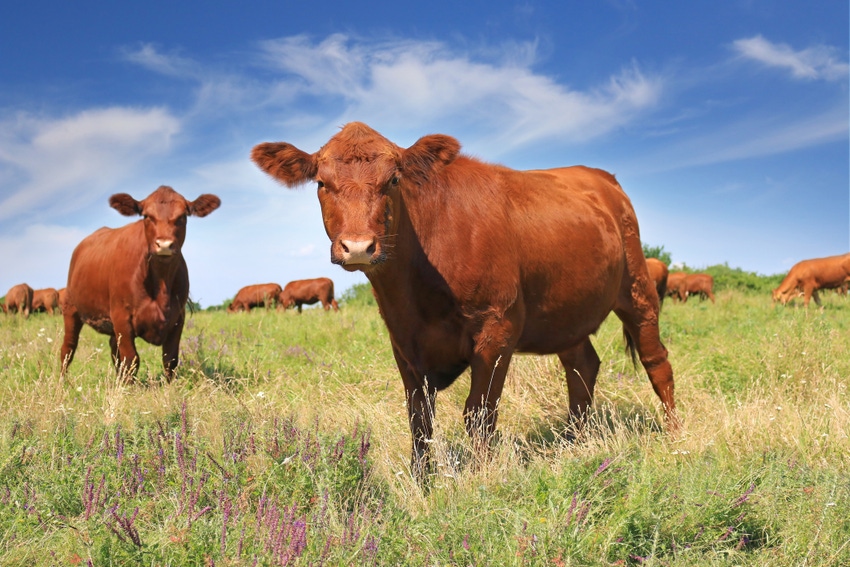DOJ investigation into cattle prices will continue
Antitrust investigation ongoing as initial USDA report on Holcomb fire and COVID-19 impact identifies no wrongdoing.

The U.S. Department of Agriculture released a report Wednesday on its ongoing boxed beef and fed cattle price spread investigation, which revealed no wrongdoing, but also said it continues to examine potential violations of the Packers & Stockyards Act and will offer support for the ongoing U.S. Department of Justice investigation. (Read initial coverage of our report here.)
“The closure of the Tyson beef packing plant in Holcomb, Kan., after a fire at the facility [last August] and the COVID-19 pandemic clearly disrupted the markets and processing systems responsible for the production and sale of U.S. beef,” U.S. Agriculture Secretary Sonny Perdue said. “The report examines these economic disruptions and the significant increase in the spread between boxed beef and fed cattle prices that resulted from them.”
Perdue added, “While we’re pleased to provide this update, we assure producers that our work continues in order to determine if there are any violations of the Packers & Stockyards Act. If any unfair practices are detected, we will take quick enforcement action.”
The report, prepared by USDA’s Agricultural Marketing Service, in coordination with the Office of the Chief Economist, summarizes market conditions, fed cattle prices, boxed beef values and the spread before and after the fire and closure at the Tyson Holcomb plant, as well as before and during the COVID-19 pandemic.
While the report does not examine potential violations of the Packers & Stockyards Act, USDA staff have maintained a cooperative relationship with staff at the DOJ Antitrust Division and have discussed allegations of anticompetitive practices in the meat packing industry. Should USDA find a violation of the Packers & Stockyards Act, it is authorized to report the violation to DOJ for prosecution, USDA said.
Agricultural analyst Dave Juday of The Juday Group released an analysis of the USDA report and its statutory recommendations.
As Dr. Stephen Koontz of the Colorado State University department of agricultural and resource economics stated, “Record-low livestock prices are also not a surprise. If packers cannot run at typical throughput levels – especially if supplies are abundant – then the marginal value of that last group of animals that is not sold is close to zero.”
As for COVID-19’s disruption of the beef market, Koontz added, “Record-high meat prices are not a surprise. The grocery store supply chain was emptied during the closures of the local economies and then had difficulty catching up. Further, prices associated with specific cuts that consumers typically prepare at home were the highest. Prices of cuts sold at restaurants initially dropped to record lows and then rallied as consumers made substitutions and began purchasing cuts they did not typically buy. However, all rallied as total of beef supplies diminished with closures and partial operations.”
Rep. Frank Lucas (R., Okla.), former House Agriculture Committee chairman, said while this report is helpful for seeking solutions and reforms, he is looking forward to the conclusion of both the USDA and DOJ investigations into any ongoing or isolated violations of the Packers & Stockyards Act or antitrust law.
Policy recommendations
The report also discusses several policy considerations in light of the desire by many market participants for improved price discovery, reinvigorated competition and a more transparent relationship between the prices for live cattle and the resulting products. Considerations include potential updates to Livestock Mandatory Reporting to reduce instances of non-reporting and increase percentages of negotiated cash transactions, risk management outreach, education and product improvements for small and medium-sized producers, small to very small meat processor outreach and opportunities and enhancements to the Packers & Stockyards Act investigative and enforcement tools.
Lucas noted, “The market strain of the past year has exposed many vulnerabilities within the beef supply chain. These events have forced many [cattle producers] across the country to seriously question the future of their often family-owned operations. This is deeply concerning to me due to the fact that these operations serve a vital role in local communities across the country and are a key part in securing the national food supply chain. I look forward to continuing to work with other members of Congress, USDA and [cattle producers] across the country to fix these issues.”
Rep. Dusty Johnson (R., S.D.) said he was pleased that the report identified a number of policy approaches to address market weaknesses. “Many of USDA’s suggestions directly relate to cattle market legislation I’ve already been fighting for. In its report, USDA highlighted the importance of small processor capacity and risk management tools for producers; my bills would solve both areas of market weakness. We have more work to do. I’m hopeful USDA’s support will only drive the momentum of getting these proposals across the finish line,” Johnson said.
About the Author(s)
You May Also Like





